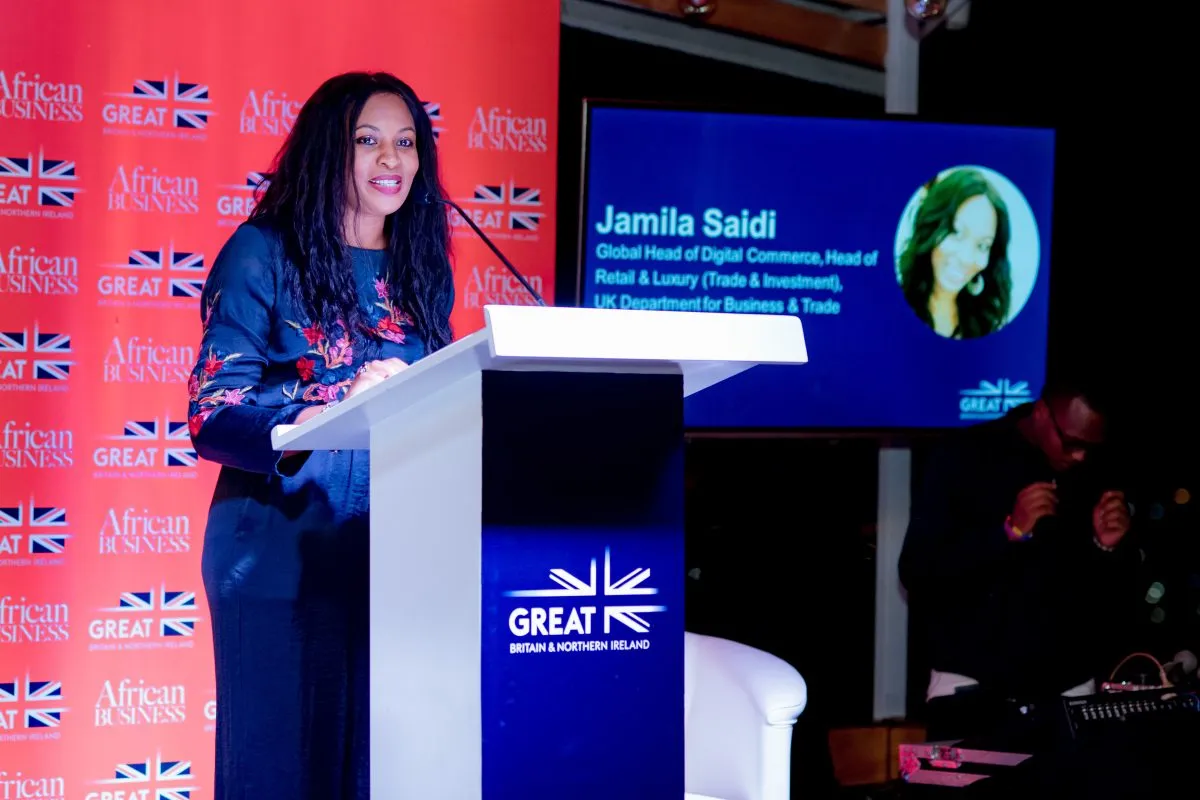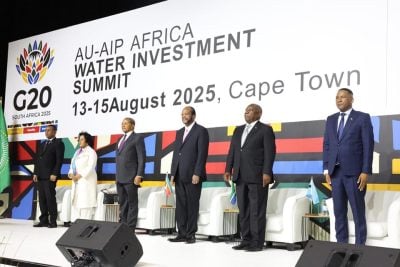The United Nations Conference on Trade and Development (UNCTAD) estimates that, if effectively harnessed, digital trade in Africa has the potential to contribute an additional $180bn to the continent’s GDP by 2025. Despite this tremendous potential, e-commerce in Africa is currently underutilised.
In 2022, out of a potential market of 1.2bn people, only 400m used e-commerce services. Several factors hinder the sector’s growth, including limited financial resources and digital skills, regulatory gaps, poor implementation of legislation, low adoption of digital payments, and challenging logistics and delivery.
Additionally, limited smartphone penetration, low digital literacy, and a lack of confidence in online product quality impede e-commerce adoption. These are the conclusions of a report prepared and published by GSMA Central Insights in collaboration with the United Kingdom’s Department for Business and Trade (DBT). The report, titled E-commerce in Africa: Unleashing the opportunity for MSMEs, was launched at the 2023 Mobile World Congress in Kigali, Rwanda. The report also makes some key recommendations for policy makers to address the challenges and enable the sector to reach its potential.
The report is based on interviews with some 1500 micro, small and medium-sized enterprises (MSMEs) in six countries that are among the biggest markets for e-commerce in Africa: namely Egypt, Ethiopia, Ghana, Kenya, Nigeria and South Africa. In addition, the researchers spoke to experts in these countries and others from Rwanda, Senegal, and Tanzania. They also conducted extensive reviews of existing literature on the subject to glean further insight and enrich the report.
According to the GSMA, the main objective of the report is to provide valuable insights for MSMEs regarding the challenges and opportunities associated with e-commerce. It is also intended to serve as a resource for various entities, including industry associations, non-governmental organisations, and national ministries of trade and digitalization, to inform their strategies in supporting MSMEs effectively through data-driven decision-making.
Facilitate evidence-based policymaking
The GSMA and UK DBT also hope that the report can facilitate evidence-based policymaking and help address existing gaps in the e-commerce ecosystem, as well as serve as a guide for donor organisations, development partners, and non-governmental organisations, allowing them to identify critical capacity-building initiatives required to assist MSMEs in embracing e-commerce. Private sector companies engaged in e-commerce, such as technology providers, payment companies, and e-commerce marketplaces, can also derive pertinent information from this report to customise their services to align with local needs, preferences and constraints, the publishers believe.
Daniele Tricarico, Senior Director, Central Insights and M&E at GSMA, who presented the findings of the report at the launching ceremony, noted that small business owners on the continent had reported that they were getting tremendous benefits from mobile technology. Among other things, the use of mobile money is helping them to access financial services, including savings products. It also helps them to store information, learn new skills and promote their products.
In particular, MSMEs rely on social networks such as WhatsApp, Facebook, Telegram and increasingly TikTok to promote their products and services. The report shows that e-commerce is helping businesses to boost sales and reach new customers. “Over 90% of MSMEs that are using e-commerce actually realised increased sales. This is an actual benefit that they are experiencing,” Tricarico said. The report also notes that social commerce, in particular, has enabled a lot more women to promote and grow their businesses. About 62% of the women surveyed reported that they utilised social commerce exclusively for marketing and promotion of their goods and services.
Access to capital
One of the key challenges identified by the report is access to capital, which was named by 23% of respondents as the key constraint on their ability fully to utilise e-commerce to drive business. Limited financing means that businesses do not have the capacity to build and maintain their websites and virtual storefronts.
It is estimated that MSMEs in Nigeria, for example, have startup funding of about $120, while those in Kenya are capitalised to the tune of $200 on average, which leaves them incapable of procuring the tools and services necessary for full e-commerce usage. Another barrier is the low levels of digital skills available to both buyers and sellers. Without the benefit of training and upskilling, many businesses do not have the skills to set up well-structured ecommerce systems, while some consumers are also unable to access these services where they are available.
Notable, also, is the preference for cash, even as mobile money and access to financial services continue to expand. In Egypt, 76% of MSMEs favoured cash, followed closely by Ghana at 67%. These preferences could be linked to the prevalence of informal enterprises in these markets, which tend to prefer cash transactions. Ghana’s imposition of a tax on peer-to-peer mobile money transactions in 2022 led to a 25% drop in P2P transfers, potentially discouraging digital payments. Ethiopia showed a strong preference for cash (over 40%) due to limited mobile money adoption and a rural population. However, Kenya had over 60% of MSMEs preferring mobile money, reflecting the widespread use of mobile payment solutions.
In Nigeria and South Africa, bank transfers were the preferred payment method, aligning with strong banking sectors in these countries. Card payments had limited popularity, except in South Africa, where 60% of the population had debit cards and 10% had credit cards. The data shows the persistence of cash as a favoured payment option, even in regions with growing digital payment infrastructure, emphasising the importance of understanding the specific preferences and needs of businesses in each market.
A deficit of trust
On the consumer side, a deficit of trust in virtual trade was identified by the report as one of the factors compromising the growth of e-commerce in Africa. Consumers are unsure that they will get the products they pay for, or when they do, that it will be of the quality promised. Linked to this is also challenges with logistics and payments. The lack of proper addressing as well as poor transport infrastructure means that affordable and reliable delivery of goods purchased online can be difficult.
Often, buyers have to pick up their products in person, especially in Ghana, Kenya and South Africa. Sellers in Egypt, Ethiopia and Nigeria reported that they are mostly able to deliver to their customers. Poor logistics and transport systems also affect the ability to return goods, further suppressing usage of e-commerce services. On the policy responses to these challenges, Tricarico said that it is important to pay attention to the fundamental drivers of digital trade. “It all starts from connectivity. At GSMA we talk about the usage gap. In Africa, we know there are 600m people who are not connected so that is a significant gap,” he said.
Although there have been advancements in connectivity throughout Africa, several obstacles still remain in some parts of the continent. Some rural and remote areas in various markets still lack access to the internet, with the quality of connections and internet speeds often impeding online commerce and transactions.
In all six markets surveyed, around 25% to 30% of MSMEs cited unreliable or poor internet connectivity as a significant hurdle, while more than a third pointed to electricity issues as a barrier.
Approximately one-fifth of MSMEs also highlighted the cost of devices and internet access as significant challenges when engaging in online sales. To enhance the quality of internet connectivity and facilitate the adoption of rural e-commerce, it is crucial to secure more extensive and improved spectrum allocation, while also establishing a compelling business rationale for investments in 3G and 4G infrastructure.
Local manufacturing of low-cost options, as well as innovative handset financing models can #help increase access to digital tools.
The report also highlights the need for improved regulations and better policies around data protection, cybersecurity, national identification and consumer protection to help advance e-commerce. The report shows that while some or all the countries in the study had some regulations for electronic transactions, personal data and consumer protection, many of the regulations were either outdated or fragmented.
It is essential to establish revised, comprehensive policies enforced by a dedicated agency responsible for overseeing their implementation. Most organisations lack a clear understanding of the laws, while there is a shortage of guidance to implement robust cybersecurity practices. To address these issues, increased collaboration between the public and private sectors is required to ensure the effective implementation of consumer protection measures and to educate consumers on self-protection. Furthermore, achieving a balance between harmonising regulations and addressing national development priorities is crucial to facilitate cross-border trade.
Re-evaluate the taxation framework
To improve the usage of digital payments, the report recommends a re-evaluation of the taxation framework applied to mobile money services and digital transactions to lower the expenses associated with digital payments for both consumers and businesses. Furthermore, the expansion of innovative payment avenues like digital cards, QR codes, and NFC technology holds the potential to enhance the convenience of digital payments for both merchants and customers.
Additionally, ensuring better interoperability among various payment methods and promoting the growth of fintech entities such as payment aggregators and gateways are vital steps in enabling swift and dependable digital payments. The development of such a supportive ecosystem can further facilitate instant settlements and foster trust in digital payment solutions.
The report notes that fintech companies, micro-finance institutions and mobile money providers have a unique advantage when it comes to delivering customised credit solutions that cater to the specific requirements of MSMEs. However, for them to realise this potential, it is imperative to establish a regulatory framework that enables their operation within the financial sector.
One approach to enhancing financial accessibility lies in directing investments towards well-established SMEs. These investments, structured in the form of equity stakes or revenue-sharing agreements, can play a pivotal role in extending financial resources to SMEs and, concurrently, spur the expansion of e-commerce activities. Again, focusing on investments in e-commerce startups and fintech ventures specialising in microcredit offerings for informal businesses can help unlock significant progress in terms of financial inclusivity. Such investments hold the capacity to broaden access to essential financial services, fortify the resilience of micro-enterprises, and galvanise the adoption of e-commerce on a broader scale, the report says.
Speaking at the event, His Excellency Omar Daair, British high commissioner to Rwanda and non-resident ambassador to Burundi, highlighted the importance of technology and trade in Africa, noting that mobile commerce and industry are going to be integral to the continent’s growth.
Mobile commerce and digital connectivity have grown in the continent, he said, pointing out that several successful, domestically owned mobile-based businesses have sprung up in the continent. “In 2022, mobile money accounts grew 13% to $1.6bn while digital transactions increased by 21% to an impressive 44.9bn transactions with a combined worth of $836bn,” he said, crediting it to regulatory changes in sub-Saharan Africa.
H.E Daair said the growing use of mobile money is contributing to e-commerce growth, observing that mobile money and e-commerce are creating huge opportunities for MSMEs through online sales of goods. He called for support for the sector, especially as it is critical to empowering women economically. The UK DBT had, in recognition of the potential for growth in the sector, commissioned the report, the recommendations of which could inform strategies that will enable MSMEs to better navigate the digital landscape.
The UK, he said, is committed to helping boost digital trade in Africa and will continue to make significant investments into the continent, including helping to establish a digital infrastructure that benefits everyone, supporting the African Continental Free Trade Area and promoting initiatives to connect African exporters with UK buyers.
Philip Lucky, the CIO of the Rwanda Development Board, who participated in a fireside chat during the launching ceremony, said Rwanda recognises the pivotal role that technology and services play in Rwanda’s ambitious goal to achieve upper-middle-income status by the year 2050.
To facilitate this, the government has embarked on an ambitious regulatory overhaul to make the country a more attractive destination for investment, particularly to the Kigali Financial Centre. He said the country has already attracted two major funds – the Africa Vingura Fund, a $250m fund backed by the Qatar Investment Authority and the Africa Export Import Bank’s $350m Fund for Export Development in Africa.
Want to continue reading? Subscribe today.
You've read all your free articles for this month! Subscribe now to enjoy full access to our content.
Digital Monthly
£8.00 / month
Receive full unlimited access to our articles, opinions, podcasts and more.
Digital Yearly
£70.00 / year
Our best value offer - save £26 and gain access to all of our digital content for an entire year!

 Sign in with Google
Sign in with Google 



